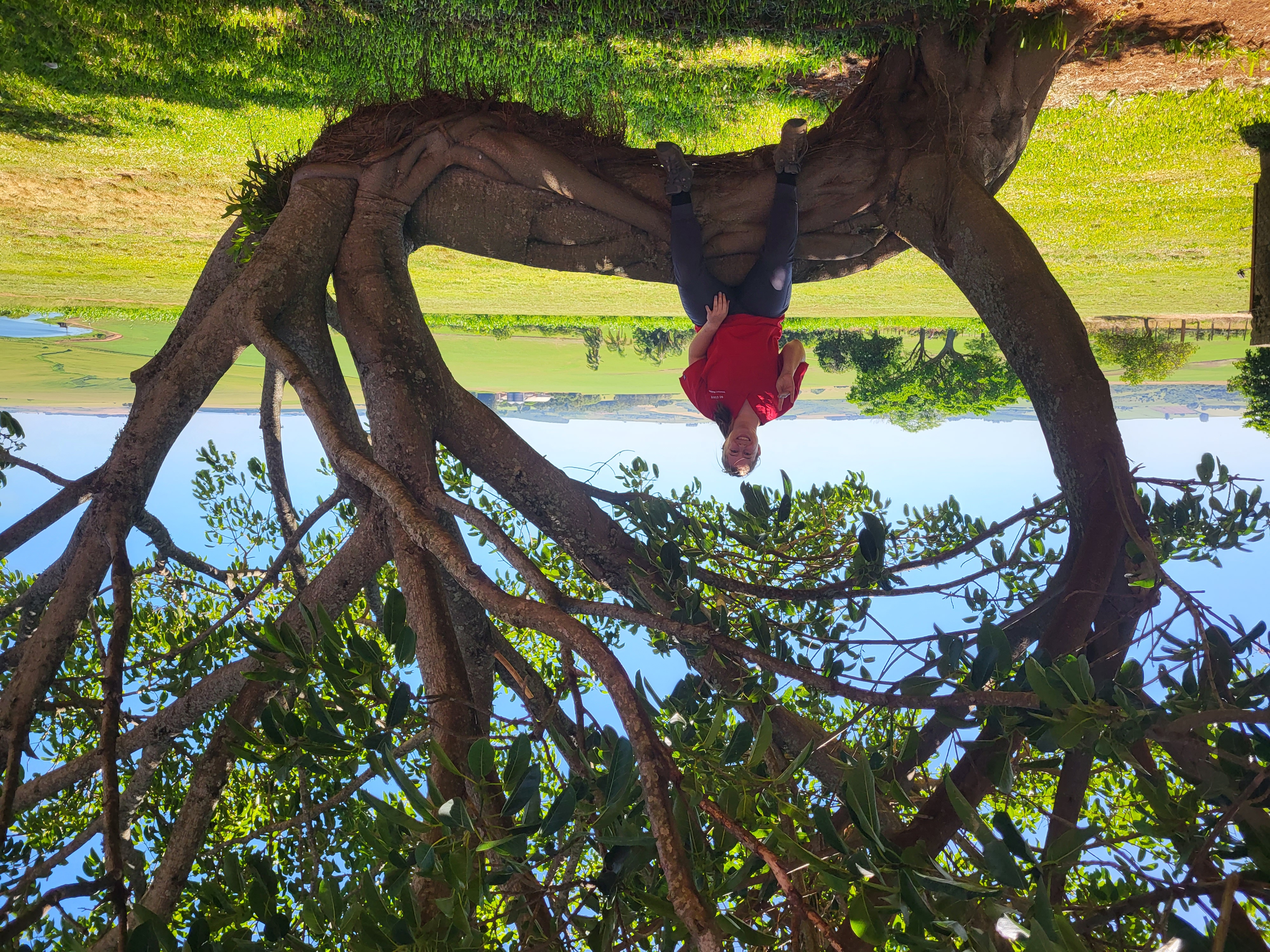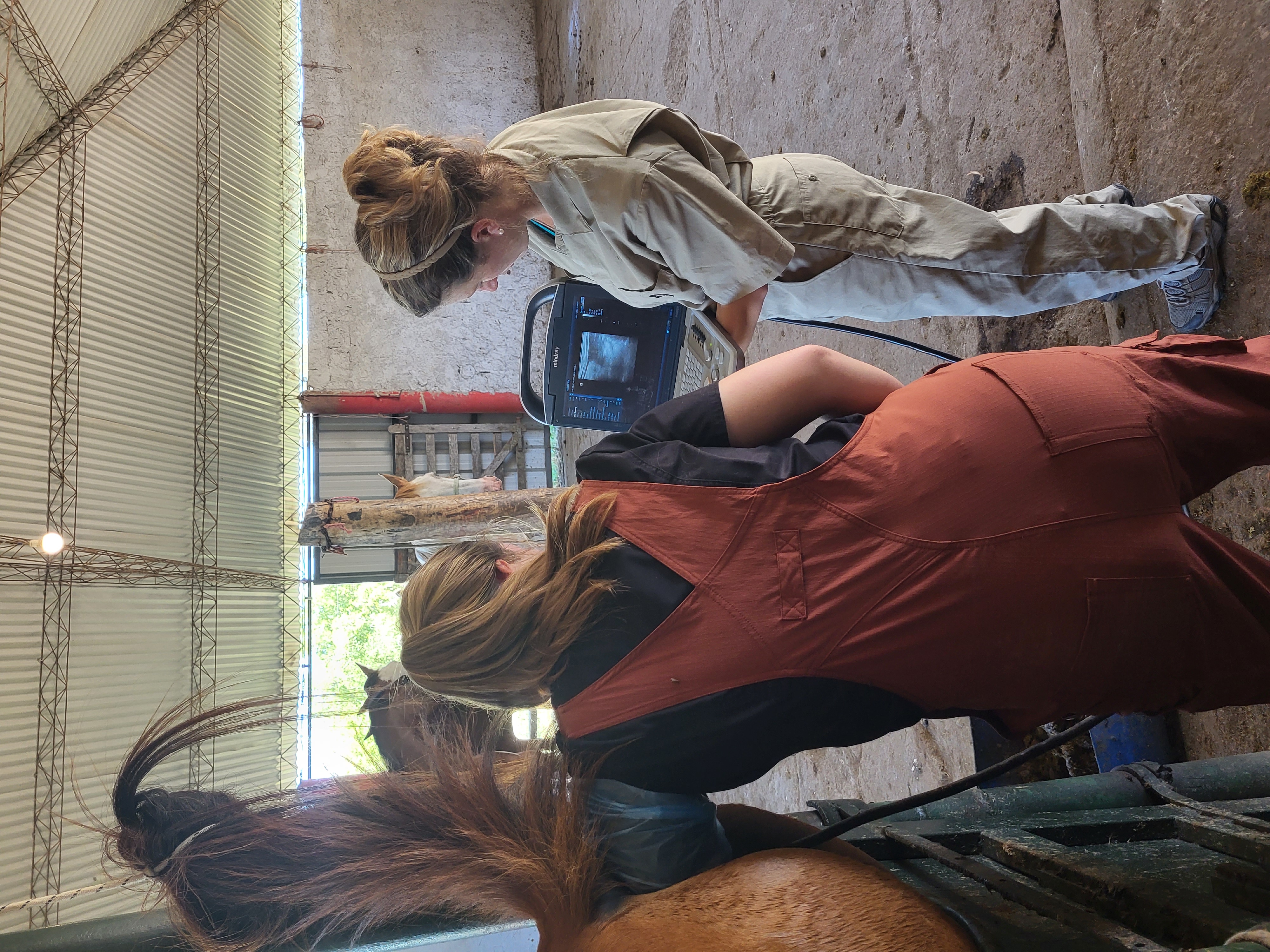STUDENT EXPERIENCE: BELIZE
 Friday, June 16, 2023 at 12:00PM
Friday, June 16, 2023 at 12:00PM Submitted by Atalani Jackson, Tuskegee University
"In the spring of 2023, I got to fulfill my long-time goal of externing at the Belize Wildlife and Referral Center (BWRC). I had been following this wildlife center since 2015 and had always been inspired by its mission and work. Upon my arrival to a quiet and tropical town located outside the city of San Ignacio, I received a warm welcome from the staff. I would be working in a modest building with an enormous impact. This is the only wildlife clinic in the country- run by the only wildlife veterinarian in the country. The clinic saw both domestic animals and wildlife and it housed one of the only veterinary radiography machines in the city.
Every day I would wake up to a choir of parakeets right outside my kitchen and had the opportunity to view a number of native parrots and toucans on my daily walk to the center. We would begin the day with feedings and treatments. And during my time there our patients included a variety of aquatic turtles, green iguanas, and a native opossum, falcon and fawn that all required care. In the afternoon we would carry out various husbandry activities and perform any lab work that needed to be completed. We would commonly perform blood draws and manual white blood cell counts on hospitalized animals. This provided me with an opportunity to observe species differences in red and white blood cell morphology. In the late afternoon, we would perform procedures and see domestic animal referrals- which typically came in to receive radiographs. We would end the day with evening treatments and feedings.
Working under Dr. Isabelle Paquet-Durand, I learned about native wildlife and the many issues they face, including illegal wildlife trafficking, poaching, human-wildlife conflict, habitat destruction, and the seasonal wildfires that plague the countryside. The center was very involved in the community through its various programs including its wildlife ambassador program. I was honored to be able to participate in their ambassador program and it was inspiring to see so many community members express interest in wildlife welfare and one-health issues. They also partnered with several local conservation nonprofits including a nearby green iguana conservation center that focused on the captive rearing of green iguanas with the goal of releasing them back into the wild. A few iguanas from the conservation center, as well as wild iguanas, were being treated at BWRC for abscesses and wounds they developed from fighting during mating season. And one of the most memorable moments during my time there was learning about and performing anesthesia on a green iguana during a successful abscess removal. In addition to this, I also had the opportunity to practice various methods of venipuncture in turtles and iguanas and bottle feed an orphaned red brocket fawn.

Outside of community educational activities and clinical work, anytime there was downtime I was able to perform necropsies. I have a strong interest in pathology, and it was exciting to be able to fine-tune my necropsy technique while simultaneously learning about the various infectious diseases that were common in Belize wildlife. In addition to necropsies, I was also able to practice loading and shooting a blow dart. This method of chemical immobilization is commonly used to remove animals from unsafe environments or to safely capture injured wildlife that is difficult to capture otherwise. The clinic typically used it for the chemical immobilization of monkeys which are difficult to reach in trees. And finally, to top off my time there we were able to release a number of the clinic’s aquatic turtle patients back into the wild.
Overall, I am so glad I got to spend time at BWRC and immerse myself in the culture and history of the country. I was able to better understand the difficulties and joys that come with running an international non-profit focused on conservation medicine. It left me inspired and more determined than ever to pursue a career in this field."
 IVEC,
IVEC,  Travel,
Travel,  student experience,
student experience,  wwildlife in
wwildlife in  Experiences,
Experiences,  Scholarships
Scholarships 





